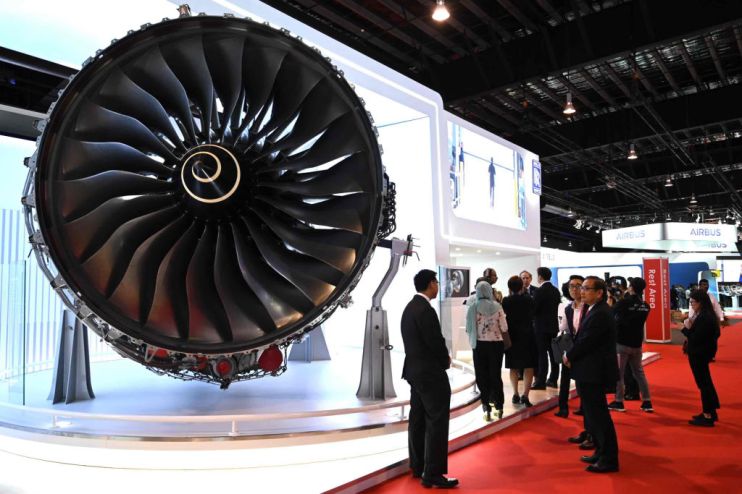Rolls-Royce crashes to £5.4bn first-half loss on Covid-19 hit

Engine-maker Rolls-Royce said today it had swung to a loss of £5.4bn for the first-half following the economic shock of the Covid-19 pandemic.
The aero giant said revenue crashed 26 per cent to £5.8bn and reported a post-tax loss of £5.4bn and an underlying post-tax loss of £3.3bn in the six months to 30 June.
Rolls-Royce shares fell six per cent this morning to 237p.
The company said it aimed to sell its Spanish unit ITP Aero and other assets to raise at least £2bn to boost its balance sheet, which has been shattered by the travel slump brought on by the coronavirus pandemic.
Rolls-Royce also said its finance boss Stephen Daintith had resigned to move to retail technology firm Ocado, but that he would remain in his role to support an orderly transition as he helps oversee £1bn of cost cuts this year.
Planes stopped flying for months earlier this year and travel still remains at a much lower level than previously, hitting Rolls-Royce’s revenues as airlines pay it on the basis of how many hours engines fly.
It said it proposed to raise funds by selling its wholly-owned subsidiary ITP Aero, which is based in Spain and makes turbine blades for jet engines, as well as other assets, alongside consolidating its manufacturing facilities into six locations from 11.
The company is cutting up to 8,000 roles to save cash and said by 27 August more than 4,000 people had left the business with at least 5,000 expected by year-end.
The cuts are spread across the UK, Germany, Singapore and other locations and include more than 2,500 voluntary and early retirement agreements in the UK.
Rolls-Royce said it expects annualised pre-tax savings of at least £1.3bn by the end of 2022 from the restructuring programme, with approximately £700m of savings directly related to job cuts.
The company said it had liquidity of £6.1bn comprising £4.2bn of cash at 30 June, and £1.9bn undrawn revolving credit facility. It said it had secured an additional £2bn undrawn term loan which it finalised this month.
Chief executive Warren East said: “While our actions have helped to secure the group’s immediate future, we recognise the material uncertainties resulting from Covid-19 and the need to rebuild our balance sheet for the longer term.
“We have identified a number of potential disposals that are expected to generate proceeds of more than £2bn, including ITP Aero and a number of other assets. Furthermore, in light of ongoing uncertainty in the civil aviation sector, we are continuing to assess additional options to strengthen our balance sheet to enable us to emerge from the pandemic well placed to capitalise on the long-term opportunities in all our markets.”